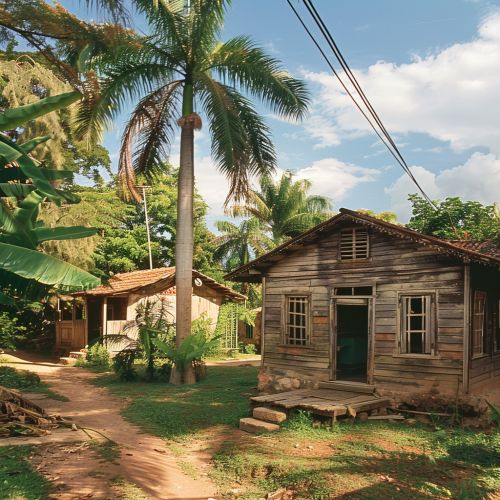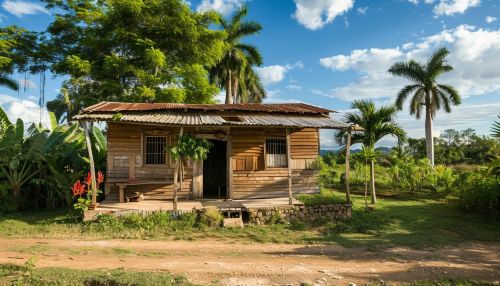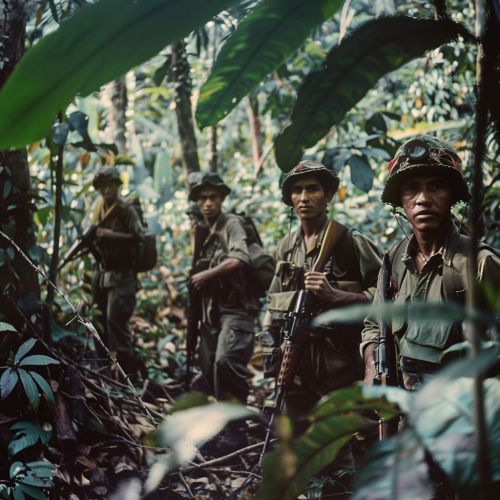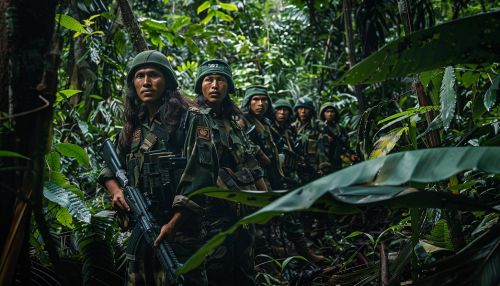Fidel Castro
Early Life
Fidel Alejandro Castro Ruz was born on August 13, 1926, in Birán, a small town in eastern Cuba. He was the third of seven children of Ángel María Borrás y Castro and Lina Ruz González. His father was a wealthy sugar plantation owner originally from Spain, and his mother was a maid to his father's first wife. They were married after Fidel was born.


Fidel's early education was received in private Jesuit boarding schools. He attended El Colegio de Belén, where he excelled in both academics and athletics. From an early age, Castro showed a strong will and a keen intellect, qualities that would later define his leadership style.
Political Awakening
Castro's political awakening began while he was studying law at the University of Havana. During this time, he became politically active and joined the anti-corruption Orthodox Party. He was deeply influenced by the writings of Karl Marx and Vladimir Lenin, which shaped his socialist and anti-imperialist views.
In 1947, Castro participated in an unsuccessful attempt to overthrow the right-wing government in the Dominican Republic. This was his first direct experience with revolutionary action, and it marked the beginning of his path towards becoming a revolutionary leader.
Moncada Barracks Attack
On July 26, 1953, Castro led an attack on the Moncada military barracks in Santiago de Cuba in an attempt to overthrow the dictatorship of Fulgencio Batista. The attack was a failure and Castro was captured, tried, and sentenced to 15 years in prison. During his trial, he delivered a speech that would become famous, known as "History Will Absolve Me". This event and the speech marked the beginning of Castro's rise to national prominence.
The Cuban Revolution
After being released from prison in 1955 as part of a general amnesty, Castro went into exile in Mexico. There, he formed the 26th of July Movement with his brother Raul Castro and Argentine revolutionary Che Guevara. The group returned to Cuba in 1956 and began a guerrilla war against Batista's government.


The revolutionaries gained popular support due to their promise of social justice and political freedom. After a protracted guerrilla war, they succeeded in overthrowing Batista on January 1, 1959. Castro became the Prime Minister of Cuba and later assumed the position of President, a role he would hold for nearly five decades.
Leadership of Cuba
Under Castro's leadership, Cuba underwent significant changes. His government nationalized industry and agriculture, implemented land reform, and promoted social welfare programs. However, these policies led to economic difficulties and strained relations with the United States, resulting in the Cuban Missile Crisis in 1962.
Castro's government was also marked by human rights abuses, including the suppression of political dissent and the imprisonment of political opponents. Despite these issues, Castro remained a popular figure among many Cubans and left a lasting impact on the country.
Legacy
Fidel Castro's legacy is a topic of ongoing debate. To some, he is a champion of the poor and a symbol of resistance against imperialism. To others, he is a dictator who suppressed human rights and stifled economic growth. Regardless of one's view, there is no denying that Castro was a significant figure in 20th-century history.
